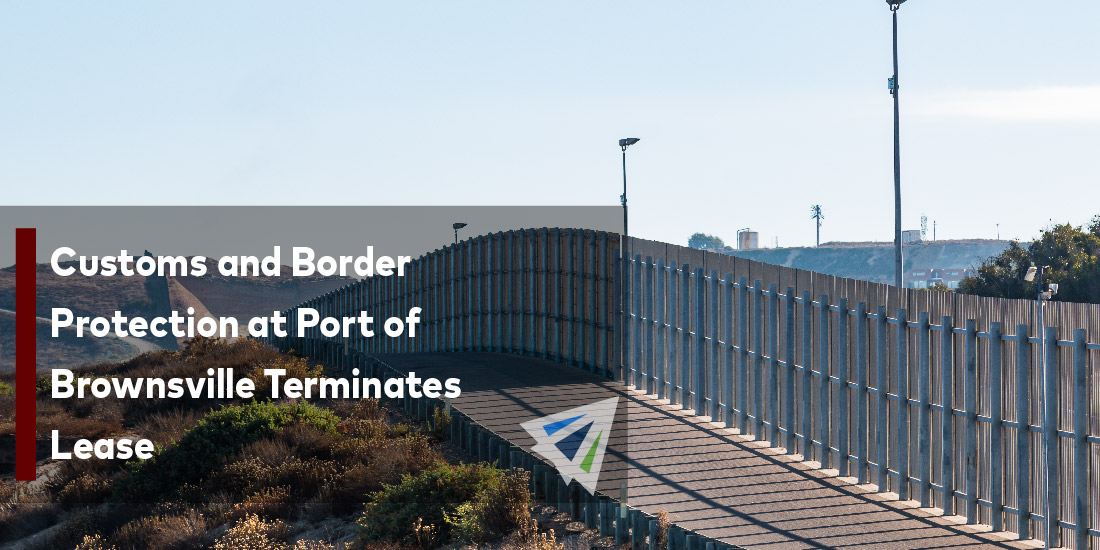Customs and Border Protection at Port of Brownsville Terminates Lease
Recently, U.S. Customs and Border Protection (CBP) announced a relocation of its offices at the southern Texas ocean port.
For over 40 years, CBP has been stationed at the Port of Brownsville which was founded in 1936. The port is responsible for large volumes of cargo movement between Mexico and the U.S. along a 17-mile-long ship channel along the Gulf of Mexico.
While a variety of goods are transferred along the route, a large majority of cargo moving in and out of the Port of Brownsville is break bulk cargo and oil/chemical tankers. The port currently has 13 general cargo docks and six liquid cargo docks. It also broke a record in 2020 for 11.6 million short tons of cargo moved. In summary, the port is considerably active, and shippers are worried the CBP relocation could cause disruptions in cargo movement.
CBP Terminates Lease with Brownsville
CBP surprisingly announced it would be terminating its lease with the Port of Brownsville and relocating its office to the Brownsville International Airport, where a new terminal was recently built.
The airport is only six and a half miles away from the Port of Brownsville and CBP notified the port that it would be dispatching its same agents to clear vessels and cargo. However, the news still comes as a disappointment and brings port officials some anxiety as the Port of Brownsville and CBP have had a long-standing partnership.
CBP appears confident that operations can continue as usual via dispatched agents. It contends that efficiency will not be compromised by the lease termination and relocation. Not all parties involved carry the same certainty though.
Mexico Postpones New Customs Requirements
Recently, Mexico announced a change to its customs process which involves the implementation of the Carta Porte. This is a digital tax document that will be issued to shipments with the goal of protecting the transfer of legitimate goods across Mexico.
While originally scheduled to take effect this month, Mexican authorities are postponing the Carte Porte implementation until March 31 due to the relocation of CBP from the Port of Brownsville. The postponement is meant to give shippers extra time to prepare and avoid fines or penalties. However, this only applies to cargo traveling by water into the Port of Brownsville. For cargo traveling via domestic trucks, the new customs requirements have already gone into effect this last week.
The new customs requirement is rather controversial, as it poses a major inconvenience to shippers. The new electronic document contains 160 questions, and all freight via all modes of shipping will be subject to the new regulation.
Please reach to our team at InterlogUSA for more information or questions you have regarding your shipping situation.
